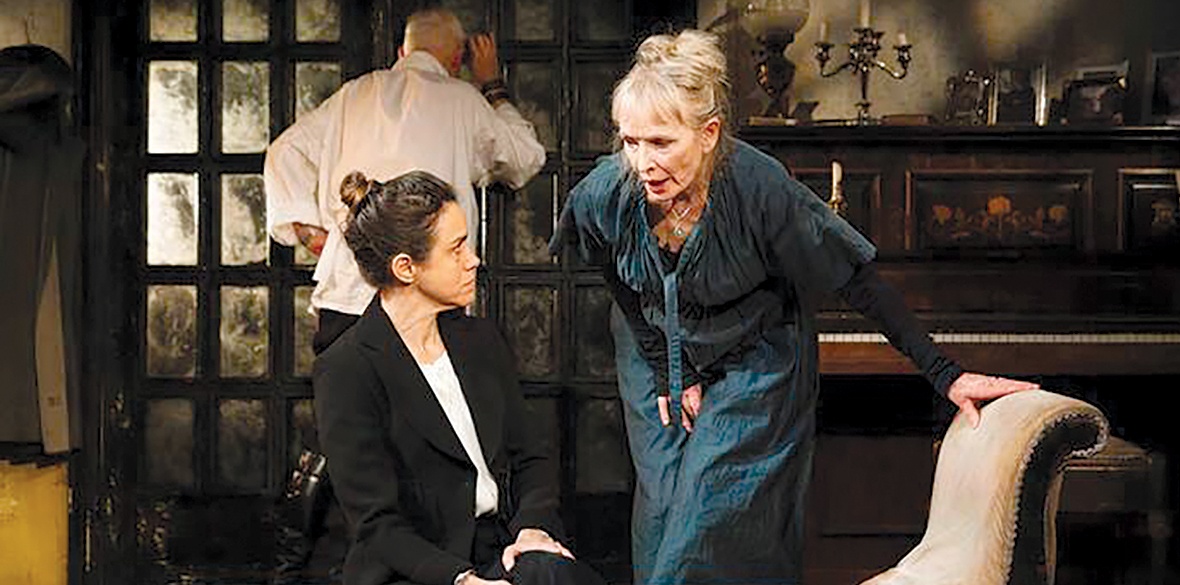This is the last article you can read this month
You can read more article this month
You can read more articles this month
Sorry your limit is up for this month
Reset on:
Please help support the Morning Star by subscribing here
The Dance of Death
Arcola
AUGUST STRINDBERG’S hugely influential play The Dance of Death, in a new version by Oscar-winning writer Rebecca Lenkiewicz (for Best Foreign Language Film Ida, co-written with Paweł Pawlikowski) is a thrilling proposition at the Arcola. And when you add the intelligent, star-performance skills of the luminous Lindsay Duncan to the mix – not to mention the commanding confidence of acclaimed director Mehmet Ergen – you would expect a night to remember from this highly anticipated run.
So why the disappointment?
The play, written originally in 1900, tells of a bitterly acrimonious 25-year marriage in which the couple (Alice and Captain) maliciously destroy one another on a day-to-day basis.
In the right hands, it can be a triumphant classic — joyously comedic, absurdly penetrating and spectacularly universal in its theme.
In this production it becomes, instead, a rather miserable little story of spite and moral ambiguity, the characters driven more by their own intrinsic nastiness than by the complex and potentially hilarious realities of a life lived in the relentless company of one other person.
The fault lies first in the style of delivery (the couple opt for a type of arch interaction that never wavers and belies their veracity) and second in the strangely uneven modernisation of the text.
The play begins with Duncan’s brilliant exposition of practised venom. Indeed, her soul-baring face and lithe body speak volumes about the life she, as wife Alice, has lived and the twisted contortions she has needed to make for survival. But we never get beyond this, and Alice seems always ripe for an almighty explosion that never transpires.
Only Emily Bruni as Katrin seems to hold a still steady performance that captures the Strindberg style and leaves a haunting memory. Hilton McCrae as Captain, meanwhile, carries a constantly glazed expression that impedes character development.
Lenkiewicz’s new version takes unhelpful liberties. The couple have been together 30 years, not 25 and the visitor who invades their toxic space is the woman, Katrin, and not the man, Kurt, as originally written.
The hints of a sexual history between Alice and female Katrin pander to current tastes but jeopardise the original dramatic scenario, whereby Captain can be seen to abuse and belittle not only a woman (his wife) but a man like himself too.
It’s an important dimension which gets lost here. The dialogue is peppered with “f” and “c” words which confuse in a setting that still seems earthed in the early 1900s and references to “a garage” seeming to mean a busy petrol station compound the muddle.
Duncan is, as always, riveting and Bruni excels, but Ergen and Lenkiewicz together have somehow misfired here... an unexpected and singular aberration from two such talented professionals.
Until July 23 2022. Box office: 020 7503 1646 and www.arcolatheatre.com










